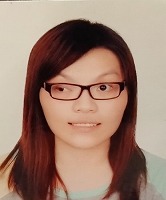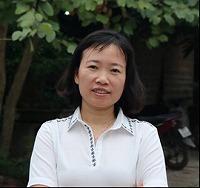Rehabilitation International Asia and Pacific Regional Conference
26 - 28 June 2019, Macau SAR, China
Macau Statement 2019 on
Leaving No One Behind in
Rights-based and Disability-inclusive Development Progress
1.
We, participants of the Rehabilitation International Asia and Pacific Regional Conference held in Macau SAR, China, from 26 to 28 June 2019, and hosted by the Fu Hong Society of Macau SAR, China, reaffirm our support for the implementation of the Convention on the Rights of Persons with Disabilities (CRPD), the Ministerial Declaration on the Asian and Pacific Decade of Disabled Persons, 2013-2022, and the Incheon Strategy to “Make the Right Real” for Persons with Disabilities in Asia and the Pacific (hereafter referred to as the Incheon Strategy), the 2030 Agenda for Sustainable Development Goals (SDGs), and the Western Pacific Regional Rehabilitation Framework on Rehabilitation of the World Health Organization (WHO).
2.We recall the:
2.1
Contributions and impact made by organizations of and for people with disabilities and other civil society entities since the world’s first regional Decade, namely, the Asian and Pacific Decade of Disabled Persosn,1993-2002;
2.2
Significant and generous support of the Governments and peoples of the Asia-Pacific region towards fulfilling the spirit and intent of the CRPD, the three Asian and Pacific Decades (1993-2002; 2003-2012; 2013-2022), the SDGs, and the WHO-led community-based inclusive development initiative;
3.We observe, with deep concern, the:
3.1
Rising challenges in mobilizing resources for supporting participation in regional and sub-regional disability advocacy programmes to raise disability awareness in the Asia-Pacific region, which is home to around 60 per cent of the world’s population, an estimated 15 per cent of whom live with some form of disability;
3.2
Low level of awareness, among the general population of the Asia-Pacific region, including the disability sector, regarding the CRPD, the Incheon Strategy and the SDGs, and even less awareness regarding the implications of these important United Nations instruments for persons with disabilities;
4.
We call upon the Governments and peoples of the Asia-Pacific region, for the purpose of promoting implementation and monitoring of the CRPD, the Incheon Strategy, and the SDGs, as well as the WHO Western Pacific Regional Framework on Rehabilitation, to:
4.1
Mobilize resources for increased efforts in organizing events at local, national, subregional and regional levels, to raise awareness in developing areas, with a focus on sustainable measures that reduce economic and social inequalities;
4.2
Facilitate regional and bilateral collaboration among developed and developing areas to support local, national, subregional and regional events and projects, including those that promote disability inclusion in the digital economy and society, as well as the participation of persons with diverse disabilities in political and public life;
4.3
Facilitate the sharing of good practices and information among civil society organizations (CSOs) and government entities in diverse sectors, to promote the active participation of persons with diverse disabilities in all aspects of mainstream economic, social and political life;
4.4
Accord particular attention to the harmonization of national, State and Provincial and local laws, regulations and policies with the CRPD, to significantly improve:
- (a) Gender-sensitive access to the built, as well as information and communication environments, as the basic right of persons with diverse disabilities, to promote disability-inclusive participation in all aspects of the development process and mainstream economic, social, cultural and political life;
- (b) Gender- and age-segregated disability statistics for supporting the participation of persons with disabilities on an equal basis with all others.
4.5
Invest in the empowerment of economically disadvantaged communities to enable pro-poor access to disability-friendly services and appropriate assistive technologies.
5.
We further call upon the Governments and peoples of the Asia-Pacific region, to support disability-inclusive policies and measures, to proactively expedite follow-up efforts on the Beijing Declaration and Action Plan to Accelerate the Implementation of the Incheon Strategy, ensuring “No One is Left Behind” in equitable sharing of development progress and, in that regard, to:
5.1
Facilitate the formation of a joint platform involving government bodies, United Nations entities, academia, the private sector and civil society entities, as well as other stakeholders, to promote disability-inclusive implementation and monitoring of the SDGs at national, State or Provincial and local levels;
5.2
Enhance multisectoral partnership within both governmental and private sector entities, with the aim of mainstreaming the right of persons with diverse disabilities to inclusion and participation on an equal basis with all others.
6.We welcome and support:
6.1
Rehabilitation International (RI) initiatives in raising funds to set up the African Fund and the Global Disability Development Fund, to support RI members and RI partnership with local stakeholders;
6.2
Collaboration between Rotary International and Rehabilitation International in disability development work in “One Belt One Road” areas;
6.3
The collaboration of networks of parents of children with disabilities in the Asia-Pacific region, to support implementation of the CRPD, Incheon Strategy and SDGs, and the WHO Western Pacific Regional Framework on Rehabilitation;
6.4
The active engagement of Economic and Social Commission for Asia and the Pacific (ESCAP) members and associate members in developing strong evidence-based and disability-inclusive policies and programmes aimed at reducing inequalities and mitigating the impact of demographic challenges, with particular attention to gender equality perspectives;
7.We further recommend that:
7.1
ESCAP members and associate members support the ESCAP secretariat in facilitating dialogue and cooperation among Governments, CSOs, partners in the United Nations system, and other key stakeholders, to enhance efforts towards fulfilling the promise of the Asian and Pacific Decade of Persons with Disabilities, 2013-2022, through, inter alia, implementing the Beijing Declaration and Action Plan to Accelerate the Implementation of the Incheon Strategy, and to devise long-term road maps and strategies beyond the conclusion of the present Decade in 2022;
7.2
Governments and CSOs in the “One Belt One Road” areas strengthen partnership based on sharing the vision of “Leaving No One Behind in Rights-based and Disability-inclusive Development Progress.”
8.
We share the joy of Rehabilitation International as it prepares to celebrate its centenary, 1922-2022, with the theme of “A hundred years of humanitarian empowerment, and a new century of rights and inclusion,” and we look forward to participating in the RI Centennial Celebration 2022 in China.
Drafting Committee appointed by the Conference Organizing Committee:
- Ms. Jennifer CHAU, Director, Fuhong Society of Macau
- Mr. Joseph KWAN, Rehabilitation International Deputy Vice President for Asia and Pacific
- Ms. Reena LEE, Korean Parents’ Network for People with Disabilities (KPNPD)
- Ms. Yeya LEE, Rehabilitation International Vice President for Asia and Pacific
- Professor Ryo MATSUI, Japanese Society for Rehabilitation of Persons with Disabilities
- Mr. You LIANG, China Disabled Persons’ Federation
- Ms. Duong Thi VAN, Hanoi DPI
- Dr. Joseph KWOK, Conference Co-Chair (Facilitator)
- Ms. SAN Yuenwah (Hon. Editor)
Purpose of the Macau Statement 2019
- 1.To put on record the RI Asia and Pacific Regional Conference held from 26 to 28 June 2019 in Macau SAR, China
- 2.To highlight the outcome of the Conference for sharing with the UN system and its experts, governmental and non-governmental platforms in the Region
Bios of Outcome Readers
First reader: Miss Stephanie Cheang (nominated by Fuhong Society of Macau)

She had paralysis of the lower limb when she was young due to spinal cord damage, and has become a wheelchair user.
She graduated with a Bachelor's degree majored in social work in Macau. She has been working as a social worker since graduation in Caritas Macau, responsible for promoting mental health of the elderly. Now, she is the center in charge of "Brillo da vida", responsible for managing and promoting the development of the center.
In 2012, she was awarded "Outstanding Disabled Employee" by the Macau SAR Government.
Second Reader: Mr Eric Leong Ka Chon (nominated by Fuhong Society of Macau)

Mr. Leong Ka Chon, Eric, a person with visual impairment and congenital glaucoma. He became totally blind when he was 6 years old. He received inclusive education since primary /elementary school. He completed a master's degree in 2019 in counselling and psychotherapy. He is now working in the Macau Holy House of Mercy as a counselor and program coordinator. He has been a member of Rehabilitation Affairs Committee of Macau SAR Government since 2017.
Third Reader: Mrs Do Thi Huyen (nominated by DP Hanoi)

Mrs Huyen received both B.A and MA in Economics in Vietnam. After more than ten years of working as a financial staff at the Academy of Finance in Hanoi, she came to the USA for further study and received her MA in International Development and Social Change from Clark University in Massachusetts in May 2013. Coming back to Vietnam, she has been working as Country Representative for Abilis Foundation, a development fund from Finland that aims at empowerment and contributes toward equal life and opportunities for PWDs. She has also devoted her time as Vice-Chairwoman of Hanoi Association of Persons with Disabilities (DP Hanoi). DP Hanoi works with Ministries and governmental agencies, local community organizations, CSOs and INGOs to promote the rights of people with disabilities. Mrs Huyen’s commitment to work for the rights of PWDs, as she has physical disability and she understands the situation of PWDs.
